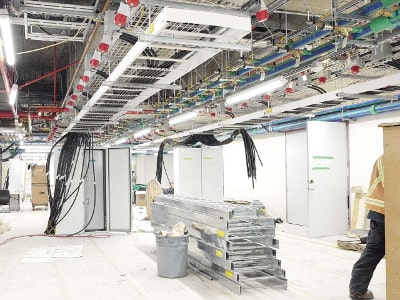

Simon Fraser University has received $8.35 million from the Canada Foundation for Innovation (CFI), the Ontario Research Fund (ORFRI) and the BC Knowledge Development Fund (BCKDF) to build a data storage hub at their Burnaby campus as part of a national network that should give Canada’s researchers a competitive edge in computing power.
The Burnaby data storage hub will house up to 25,000 CPU cores, nearly 1,000 graphics processing units (GPU) and 15PB (or 15 million gigabytes) of storage disks.
“We designed, together with our partners, a Canadian solution that is unique in the world,” said Compute Canada President and CEO Mark Dietrich to SFU News. “Because of Compute Canada’s national platform and federated model for service delivery, we are able to deliver accessible, national solutions on a common platform across the country.”
The new storage system will be operated by Compute Canada and its partner universities.
Operational funding from the CFI’s Major Science Initiatives (MSI) program will be matched by provincial and institutional funds, with further investments planned through late 2017, growing the network capacity to store approximately 62PB, eventually expanding it to more than 100PB in 2018, and 250PB by 2020.
The investment represents the first installment in Compute Canada’s renewal of Canada’s Advanced Research Computing Platform, phased to roll out until 2018, to replace ageing systems with four new systems that will consolidate resources and centralize services, hosted at the University of Victoria, Simon Fraser University, the University of Waterloo, and the University of Toronto.
“We are honoured to be part of the collective effort to scale up advanced research computing in Canada,” said SFU vice president of research Joy Johnson. “The new cyber-infrastructure will make it easier for researchers to securely store and share data from coast to coast, stimulating made-in-Canada discoveries and innovations.”
A few months ago, Compute Canada unveiled its list of 343 recipients of its 2016 computing and storage allocation competitions, known as the Resource Allocation Competition (RAC) and the Research Platforms and Programs (RPP) competition, from researchers across the country requiring computing power to conduct their studies across the country.
Compared to 2015’s applicants, this year’s applications requested on average 16% more computing resources, 34% more storage, and 123% more GPU computing resources.
Results generated by advanced research computing are key to keeping Canada competitive in developing the next generation of scientific discoveries and applying the use of data analysis to a wider range of disciplines, from traffic modelling to weather forecasting.
Leave a Reply
You must be logged in to post a comment.



 Share
Share Tweet
Tweet Share
Share




Comment